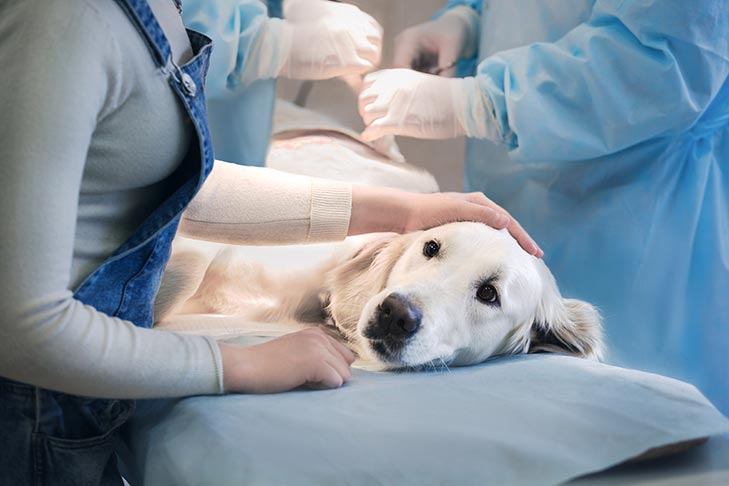Veterinary Oncology: Understanding Cancer Treatment for Pets

Strong 8k brings an ultra-HD IPTV experience to your living room and your pocket.
Cancer is one of the most challenging health conditions that pets can face. As veterinary medicine advances, veterinary oncology has become a specialized field focused on diagnosing and treating cancer in animals. Just as in human medicine, early detection, accurate diagnosis, and advanced treatment options can significantly improve a pet’s quality of life and prognosis. This guide explores the causes, common cancer types, diagnostic methods, treatment options, and the role of veterinary oncologists in providing comprehensive cancer care for pets.
Understanding Veterinary Oncology
Veterinary oncology is the study and treatment of cancer in animals, primarily focusing on dogs, cats, and other companion animals. The field involves a multidisciplinary approach that includes oncologists, surgeons, radiologists, pathologists, and specialized veterinary technicians working together to develop personalized treatment plans for each patient.
Cancer in pets can be genetic, environmental, or spontaneous, and while some types are more aggressive than others, advancements in veterinary oncology have led to better diagnostic techniques and treatment options that can extend and improve the lives of affected animals.
Common Types of Cancer in Pets
Just like humans, animals can develop a variety of cancers. Some of the most common types include:
1. Lymphoma
- Affects the lymphatic system, which is responsible for immune function.
- Common in dogs and cats, especially in breeds like Golden Retrievers.
- Symptoms include swollen lymph nodes, weight loss, and lethargy.
- Often treated with chemotherapy, which can lead to remission.
2. Mast Cell Tumors (MCTs)
- Affects the skin and other tissues; common in dogs.
- Symptoms include lumps on the skin, redness, and swelling.
- Surgery is often the primary treatment, sometimes followed by radiation or chemotherapy.
3. Osteosarcoma (Bone Cancer)
- Aggressive cancer affecting the bones, particularly in large and giant breeds.
- Symptoms include lameness, swelling, and bone pain.
- Treatment often involves amputation and chemotherapy to prevent metastasis.
4. Hemangiosarcoma
- Affects blood vessel cells, often found in the spleen, heart, or liver.
- More common in dogs than cats.
- Symptoms include internal bleeding, weakness, and sudden collapse.
- Treatment typically includes surgery and chemotherapy.
5. Mammary Tumors
- Common in female dogs and cats, especially those not spayed.
- Symptoms include lumps in the mammary glands.
- Treatment often involves surgical removal and, in some cases, chemotherapy.
6. Oral Melanoma
- Aggressive cancer affecting the mouth and gums.
- Symptoms include difficulty eating, bad breath, and facial swelling.
- Treatment includes surgery, radiation therapy, and immunotherapy.
7. Transitional Cell Carcinoma (Bladder Cancer)
- Affects the bladder and urinary system.
- Symptoms include difficulty urinating, blood in urine, and frequent urination.
- Treatment involves chemotherapy, targeted therapy, and sometimes surgery.
How Veterinary Oncologists Diagnose Cancer in Pets
Early detection is crucial in improving a pet’s chances of successful treatment. Veterinary oncologists use advanced diagnostic techniques to identify and stage cancer accurately.
1. Physical Examination- Checking for lumps, swelling, weight loss, or changes in behavior.
2. Blood Tests - Analyzing organ function and detecting abnormalities in red or white blood cells.
3. Imaging Techniques -X-rays, ultrasounds, CT scans, and MRIs help visualize tumors, their size, and spread.
4. Fine Needle Aspiration (FNA) and Biopsy - FNA involves extracting cells from a lump for microscopic evaluation. Biopsy removes a tissue sample for histopathological analysis, determining cancer type and grade.
5. Bone Marrow Aspiration - Used to diagnose blood cancers like leukemia and lymphoma.
6. Molecular and Genetic Testing - Some advanced veterinary hospitals use genetic markers to identify specific cancer subtypes and tailor treatments.
Treatment Options in Veterinary Oncology
Cancer treatment in pets depends on the type, location, stage, and overall health of the animal. Treatment plans may include surgery, chemotherapy, radiation therapy, targeted therapies, or palliative care.
1. Surgery
- The first line of treatment for tumors that can be removed.
- Common for skin tumors, mammary tumors, and certain internal cancers.
- Can be curative or palliative, depending on the tumor's stage.
2. Chemotherapy
- Uses anti-cancer drugs to target and kill cancer cells.
- More commonly used for lymphoma, mast cell tumors, and metastatic cancers.
- Side effects in pets are generally milder than in humans, with careful dosing to maintain quality of life.
3. Radiation Therapy
- Uses high-energy rays to shrink or eliminate tumors.
- Effective for oral cancers, brain tumors, and certain sarcomas.
- Often used in combination with surgery or chemotherapy.
4. Immunotherapy
- Enhances the pet’s immune system to fight cancer.
- Melanoma vaccines and monoclonal antibodies are examples of new advancements in veterinary oncology.
5. Targeted Therapy
- Uses drugs that specifically attack cancer cells while sparing healthy cells.
- Some cancers, like mast cell tumors, respond well to targeted medications.
6. Palliative Care
- Focuses on comfort and pain management for pets with advanced-stage cancer.
- May include pain relievers, dietary changes, and holistic therapies.
Caring for a Pet with Cancer
If your pet is undergoing cancer treatment, supportive care is essential to maintaining their quality of life. Here are some tips:
1. Monitor Symptoms Closely - Keep track of eating habits, energy levels, and any new symptoms.
2. Provide a Comfortable Environment - Ensure your pet has a quiet, stress-free space for rest and recovery.
3. Maintain a Nutritious Diet - Some pets may need specialized diets to maintain weight and strength during treatment.
4. Follow Medication Schedules - Pain management and supportive medications should be given as prescribed.
5. Schedule Regular Veterinary Check-Ups - Frequent follow-ups help track treatment effectiveness and adjust care plans as needed.
The Future of Veterinary Oncology
Veterinary oncology is a rapidly evolving field with new treatments and technologies emerging to improve survival rates and quality of life for pets. Advances in gene therapy, personalized cancer vaccines, and precision medicine offer hope for better outcomes. Research continues to explore non-invasive treatment methods that can provide effective cancer care while minimizing discomfort.
Final Thoughts
Veterinary oncology plays a crucial role in extending the lives of pets diagnosed with cancer. With early detection, proper diagnosis, and advanced treatment, many pets can continue to enjoy happy and fulfilling lives. If your pet has been diagnosed with cancer, consult a veterinary oncologist to explore the best treatment options available.
Understanding cancer in pets and staying informed about treatment advancements allows pet owners to make the best decisions for their furry companions. With love, care, and modern veterinary medicine, pets with cancer can receive the support they need for a brighter future.
Note: IndiBlogHub features both user-submitted and editorial content. We do not verify third-party contributions. Read our Disclaimer and Privacy Policyfor details.


